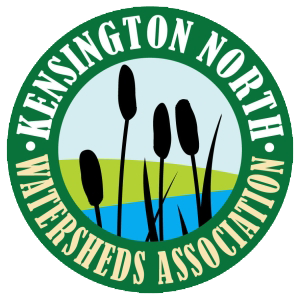Growing Sustainable Agr-Environmental Partnerships in PEI
Kensington North Watersheds Association and local farmers are working together for a sustainable agriculture system in PEI. On Monday March 12th in the Crop Insurance building in Kensington local agriculture producers met for the annual Kensington North Farmers meeting. A successful turnout with over 30 growers, agronomy industry experts, research scientists, and other stakeholders in attendance the group gathered to discuss current strategies for understanding and improving soil health and how to incorporate more informed and effective farm nutrient management strategies. The KNWSA has been working with its local producers on a number of projects over the years and has just recently wrapped up a three year soil health study.
From 2015 to 2017 Matt Ramsay and members of the KNWSA have been looking into methods for increasing soil organic matter and researching soil quality in order to gain a better understanding of soil health metrics as they apply to PEI. The group ran tillage trials comparing alternative residue tillage machinery to the more conventional moldboard plow. Data from these trials is showing promising results for the future of the industry with the more environmentally sustainable residue tillage practice outscoring the moldboard plow on pay yield data in all but one trial.
The group indicated that improving soil organic matter is the foundation of a sustainable agriculture system and while Prince Edward Island has shown a shocking decrease in soil organic matter as a whole, they are confident that adopting organic matter building practices such as cover cropping and residue tillage, that over time we will see things start to shift for the better. The group also measured soil quality in a number of fields over the length of the project by collecting soil samples under the Cornell Soil Health Test standardized method.
Along with the discussion on the KNWSA Soil Health Project, there were several guest speakers discussing valuable agri-environmental studies presenting a number of industry challenges and potential resolutions. Guest speaker Rick Peters, a Research Scientist from Agriculture and Agri-food Canada (AAFC) spoke about soil health cropping systems and disease management presenting some interesting insight into the nature of common agriculture diseases such as scab and the impacts residue tillage practices have on them.
Tandra Fraser of AAFC is a Research Scientist in the field of Soil Microbial Ecology. She spoke in length about the role of soil biodiversity in sustainable agriculture systems. She compared the effect a particular crop rotation can have on soil biodiversity and nutrient cycling.
Judith Nyiraneza, another Research Scientist of the AAFC spoke in detail about the results of phosphorous trials she has completed, specifically in the Kensington area with aid from the Kensington North Watershed Association. She proposed that the old methodology of more is better in reference to nutrient management may not always be the case, but rather that there is a critical rate at which you should apply phosphorous on a potato crop before the nutrient input costs the grower more to apply than it does benefit the crop yield.
Another interesting presentation was given by Erica MacDonald, a Nutrient Management Specialist of Paradigm Precision speaking on investigating the practice of fall application of potash and the potential for nutrient leaching from PEI soils over winter. Each of the presenters is actively seeking grower participation to further their studies. For further information on the results of these presentations, visit the KNWSA website listed below.
The KNWSA says they have seen a spike in uptake and adoption of ecologically sound agriculture practices in their area. “We are lucky to work with such a great group of farmers in our area and over the length of this soil health project we’ve seen a remarkable increase in farmer participation in truly exceptional ecological stewardship through cover cropping and utilizing these reduced tillage practices” Barry Murray (resigning Executive Director at KNWSA).
The group admits however, that there are still many unanswered questions and it will take more time and research to have enough data to statistically say what works and what doesn’t when it comes to improving soil health on PEI. “We are eager to continue to learn as much as we can about the agri-ecosystem and how we can plan for the future of farming in PEI” Josh Lindsay (Projects Manager at KNWSA).
Kensington North plans to expand on the research they’ve done into soil health and look into more methods for improving soil organic matter and adopting more informed nutrient management practices.
This column is presented by the Kensington North Watersheds Association and the East Prince Agri-Environment Association to inform our communities of the ongoing efforts farmers are taking toward good environmental stewardship.
